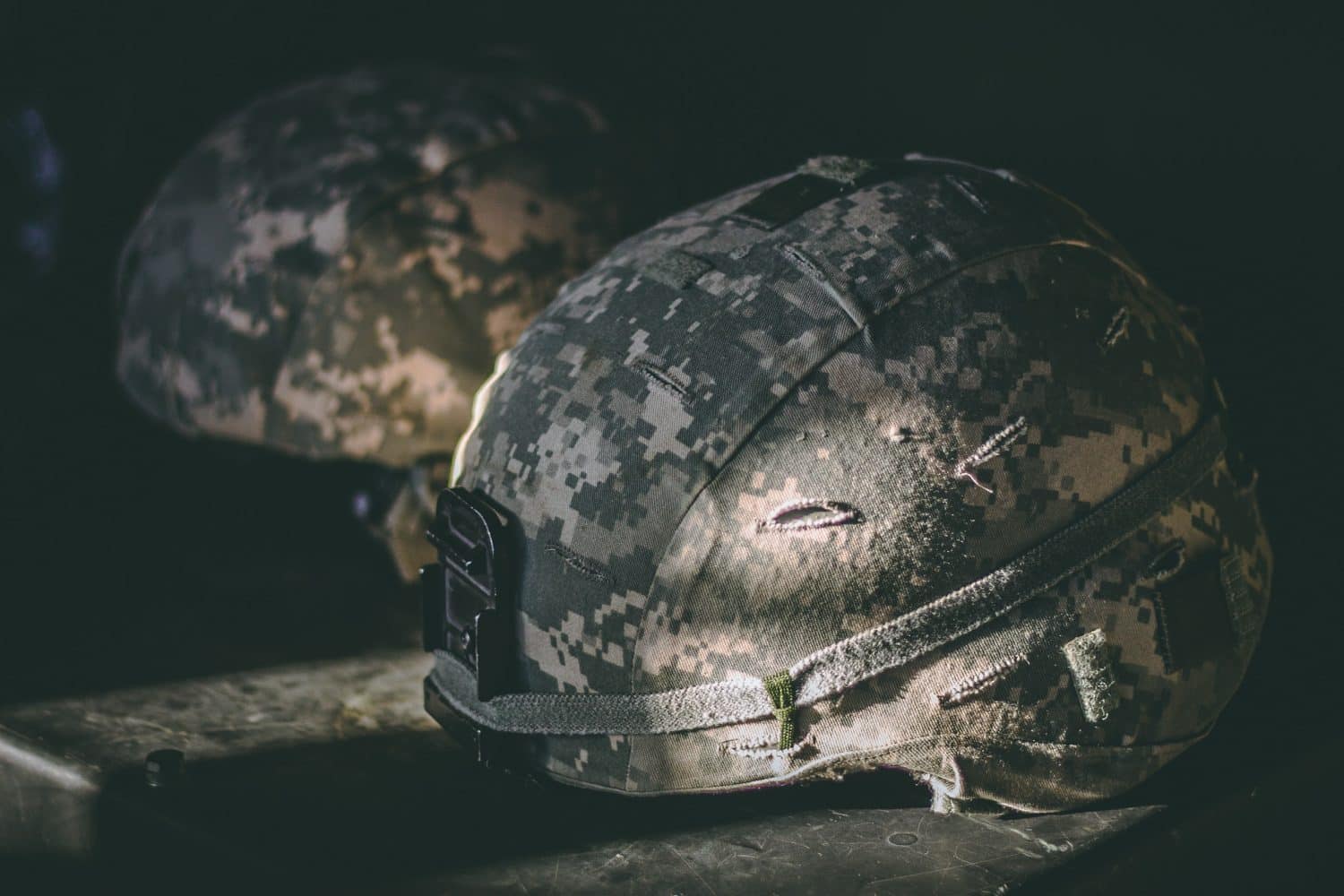
Many veterans and first responders struggle with PTSD derived from professional experiences. Addiction is a common problem among these groups. Trafalgar Addiction Treatment Centres provides dedicated, evidence-based support for veterans and first responders struggling with PTSD-related addiction.
Trafalgar Addiction Treatment Centres is accredited by the Commission of Accreditation on Rehabilitation Facilities, or CARF. CARF is an international, independent organization which defines standards in the addiction treatment industry. Accreditation recognizes that an organization has met these standards.
Trafalgar offers programs designed specifically for people struggling with concurrent addiction and PTSD-related problems. There is often a strong link between trauma disorders and addiction. People struggling with trauma may turn to addictive substances as a method of escape. According to Statistics Canada, “Around 50% of males and 25% of females with chronic PTSD have major problems with alcohol and drugs; the figures for Veterans are even higher.” PTSD is also highly prevalent among members of the emergency services. The International Association of Fire Fighters reported in 2016 that “over 17% of Canadian firefighters and paramedics” have reported experiences with PTSD, making first responders highly vulnerable to PTSD-related addiction.
PTSD and Addiction Effects
The Centre for Substance Abuse Treatment, in their book Trauma Informed Care in Behavioural Health Services, explain the link between trauma and addiction:
“Self-medication—namely, substance abuse—is one of the methods that traumatized people use in an attempt to regain emotional control, although ultimately it causes even further emotional dysregulation (e.g., substance-induced changes in affect during and after use). Other efforts toward emotional regulation can include engagement in high-risk or self-injurious behaviours, disordered eating, compulsive behaviours such as gambling or overworking, and repression or denial of emotions.”
Stephan Grenier, the Canadian military’s Special Advisor on Stress Injuries, believes that veterans struggling with PTSD are “an anomaly for the mainstream mental health experience.” He states that the condition is “not understood,” and that people dealing with PTSD are “not referred to the right places for longer, more in-depth care.” This makes finding appropriate treatment particularly difficult, which in turn makes people more likely to turn to self-medication. We design our treatment programs specifically for veterans and first responders struggling with PTSD-related addictions. We have strong relationships with the Workplace Safety and Insurance Board, Veterans Affairs, Victim Services and the Canadian Armed Forces. This allows us to treat PTSD-related addiction in a manner most suited to the client.
We understand the specific issues faced by members of these groups. We also understand how to treat them. Our focus is not simply simply on the client’s addiction problems, but on the underlying conditions causing them. Our holistic approach ensures that we treat the whole person and not just their condition. Evidence-based, client-centred treatment is provided by therapists and counsellors with experience treating the relevant issues. As all of our clinical staff hold Master’s degrees or higher, clients are guaranteed expert treatment.
PTSD Treatment at Rehab Centres
Clients can attend any of our three state-of-the-art residential centres, or outpatient treatment at our centre in midtown Toronto. Our facilities provide an ideal environment for treatment. Clients have access to highly qualified, dedicated professionals and the most advanced treatment technologies. They are given the best possible support to work towards recovery. The tranquil, scenic settings of our residences are also highly conducive to recovery. The therapists and counsellors at all of our locations use the most evidence-based, client-centred treatment methods. These include cognitive behavioural therapy, individual therapy, group counselling, and other relevant techniques. Our compassionate, holistic approach ensures that the client develops a solid foundation to work towards recovery.
PTSD-Related Addiction Treatment
PTSD is a sustained form of trauma that an individual may not be able to process and move beyond without professional assistance and peer support. Symptoms can include recurring flashbacks, nightmares, depression and severe anxiety. People may also suffer from recurring invasive thoughts. Self-medication is a common response for those struggling with symptoms that isolate them and make them deeply vulnerable. They may then come to rely on substances as coping mechanisms, meaning the potential for addiction is very high.
Due to the environments veterans and first responders often work and live in, individuals may not see seeking professional treatment or confiding in others as an option. This makes repression, self-medication and addiction far more likely. Appropriate treatment allows the person to collaborate with experienced professionals. This enables them to identify evidence-based methods of coping with their symptoms in a healthy, progressive way. It helps them work towards recovery and identify relapse triggers and methods for dealing with them.
PTSD and Addiction Therapy
As the Toronto Psychology Group state, “Therapy can be a powerful tool for dealing with the after-effects of trauma, whether your traumatic experience was a single event such as an accident or an act of violence, or many accumulated events, as in the case of long-term neglect or abuse.” Therapy allows clients to manage PTSD symptoms and their emotional response to them. This makes functioning in daily life more straightforward as they continue to process their trauma. As the Center For Substance Abuse Treatment describe, “In treatment, the goal is to help clients learn to regulate their emotions without the use of substances or other unsafe behaviour.” Trafalgar Addiction Treatment Centres’ experienced, dedicated clinical team provide this form of treatment to an exceptionally high level, providing the client with the best possible foundation for recovery.
Challenges of Treating PTSD
Trafalgar’s Chief Clinical Officer Laura Demoe (MSW, RSW, CSAT) describes some of the particular challenges of treating PTSD. She notes that, before we can properly treat trauma, a person must develop certain self-regulation skills. “Trauma therapy can typically leave a person feeling worse before they feel better. The biggest issue that we see in treating PTSD when there’s also addiction involved is that it can take quite a bit of time for a person to become stabilized and to build up their self-regulation skills enough to engage in the trauma therapy work.”
The lack of a clear timeline for PTSD treatment also adds complication. “To treat trauma effectively can take any amount of time. There are certain techniques with a lot of research behind them that are supportive of treating trauma, but there’s no set timeline of how long they will take to be effective. For example, Eye Movement Desensitization and Reprocessing Therapy (EMDR) is proven to be an effective way to treat trauma, but depending on the person’s state when you first start, the initial phases of that treatment could take anywhere from one month up to two years in some cases. Of course, unfortunately there’s usually a time limit on treatment for people. With veterans and first responders we often have more time to work with them, but they have also often experienced chronic trauma, which takes longer to treat.”
EMDR PTSD Treatment
EMDR Canada describe EMDR treatment as “an integrative psychotherapy approach that has been extensively researched and proven effective for the treatment of trauma and many other mental health problems.” The treatment functions by exposing the client to limited amounts of triggering material but having them focus their attention on separate material. As described by the EMDR Institute, the client engages with emotionally disturbing material in “brief sequential doses” while “simultaneously focusing on an external stimulus.” In this way, the client is gradually desensitized to the distressing material. Factors that have inhibited their recovery are confronted and managed to allow them to process trauma. The EMDR Institute describe treatment as allowing a person to “activate their natural healing processes” by removing obstacles to progress.
Given the complexity of PTSD-related addiction, intensive, expert treatment is essential. Trafalgar Addiction Treatment Centres can provide this. “We are in a good position to treat PTSD because we don’t establish a time limit when people come in. We’ve had clients come in for thirty days, and we’ve had clients that have stayed up to a year. Particularly for first responders and veterans, who have access to benefits and can afford the treatment, there’s no limit on their treatment.”
Intensive PTSD Treatment Program
Trafalgar’s intensive therapy program, with three individual sessions with a therapist each week, is also ideally suited to PTSD treatment. “In group therapy for trauma treatment it can be challenging to establish a safe, trusting environment. With individual treatment with a therapist it’s easier because it’s only one person you’re building trust with and opening up to, instead of in a group format.” Group therapy with others dealing with similar challenges remains an important part of treatment, but the two formats complement one another very effectively.
PTSD Treatment for First Responders and Veterans
First responders and veterans have often undergone experiences in their professional lives that are significantly different to those faced by others in addiction treatment. For members of these groups, undergoing treatment alongside others who do not have similar experiences can be less effective and potentially alienating. One of the most debilitating aspects of trauma is that it is fundamentally difficult to communicate about, and yet communication is essential to treatment. Many veterans and first responders will also have worked in environments that do not encourage communication around mental health issues. While many organizations are working to improve in this regard, silence and stigmatization around mental health problems in the relevant professions remains a major issue. People struggling with mental health problems in these professional environments will often repress serious issues. In many cases they will turn to self-medication.
Kevin Johnson, a former Halifax Regional Police Officer, struggled with PTSD originating from experiences during his time on the force. “I think it’s one of the worst things people can do is deny it and not admit that it’s there,” he states. I think it’s more common than we realize and a lot of people out there are suffering in silence.” In our focused PTSD treatment program for veterans and first responders, a space is created in which people can be comfortable sharing experiences with others who will understand them. Alongside individual therapy, specialized group therapy is a crucial aspect of Trafalgar’s treatment.
Support After PTSD Treatment
PTSD symptoms can manifest in different ways which may not be visible even to those close to the person suffering. They can emerge gradually or some time after the original events. This makes them difficult to identify clearly even for the person affected. Alongside the potential for longer treatment, this makes Trafalgar’s Aftercare and ContinUcare programs particularly valuable. Aftercare functions through group counselling sessions specific to certain issues, providing long-term peer support and preventing a person from becoming isolated. It is available to Trafalgar clients on a permanent basis after finishing their initial treatment. It is a crucial part of the organization’s commitment to its clients.
ContinUcare keeps clients in touch with our clinical team through sets of questions that will be provided periodically, allowing the client to monitor their own progress and helping our clinical staff to identify any potential issues. These programs provide Trafalgar alumni with access to long-term supports that reduce the likelihood of relapse. They also reassure the client and those close to them that any problems that arise will be identified and addressed.
PTSD and Addiction Treatment
Trafalgar Addiction Treatment Centres provides the highest standard of treatment for PTSD-related addiction. We treat these complex issues with compassion and dedication as well as expertise. We always centre our treatment around the client and base it on evidence-based methods. Every person’s requirements are different. Our treatment focuses on the most effective forms of methods for the individual. Our clients will leave our care with a strong foundation for recovery and the guarantee of our continued support.





